MEET OUR TEAM
MEET OUR TEAM
LEADERSHIP TEAM

Christopher M. Barker, PhD, MS
Professor, University of California, Davis
PacVec Program Director
Dr. Chris Barker is a professor in the Department of Pathology, Microbiology, and Immunology at the University of California, Davis, School of Veterinary Medicine. The Barker Lab studies the factors that cause outbreaks of mosquito-borne viruses. They work closely with partners in public health and mosquito control on research to inform policy for disease prevention. The Barker Lab conducts centralized diagnostic testing for arboviruses and houses web-based data platforms for mosquito and arbovirus surveillance. Current research projects focus on the biology of invasive mosquitoes, the epidemiology of Zika, dengue, and West Nile viruses, and better quantitative methods for evaluating surveillance and control.

Peter Atkinson, PhD
Professor, University of California, Riverside
Dr. Peter Atkinson is a professor in the Department of Entomology at the University of California, Riverside. The Atkinson Lab focuses on developing new genetic technologies which enable the safe and sustainable control of insect pests of human health and agricultural importance. They work on gene and enhancer trapping-based technologies using transposable elements and also use CRISPR/Cas-based approaches in a range of insect pest species.

Kathleen Walker, PhD
Associate Professor, University of Arizona
Associate Specialist, Insect Discovery Outreach Program
Dr. Kathleen Walker is an associate professor in the Department of Entomology at the University of Arizona and an associate specialist directing the Insect Discovery Outreach Program, providing a variety of resources to help teachers make the most of their students’ fascination with the amazing world of insects. The Walker Lab studies the ecology of arthropod vectors that inhabit the peri-domestic environment, focusing on the influence of climate and human behavior on vectorial capacity. The Walker Lab has focused on Aedes aegypti on the U.S./Mexico border, investigating the interactions between climates, mosquito longevity and dengue transmission. They are now broadening their focus to examine the ecology of Rhipicephalus sanguineus, the brown dog tick, and factors driving regional rickettsia outbreaks.
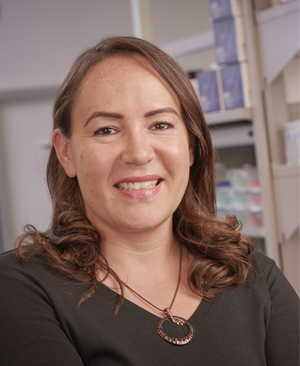
Crystal Hepp, PhD
Associate Professor, Translational Genomics Research Institute
Dr. Crystal Hepp is an associate professor in the Pathogen and Microbiome Division of the Translational Genomics Research Institute. Hepp has a background in evolutionary biology and genomics, and her lab focuses heavily on using environmental surveillance of pathogens, especially viruses, to understand their spread over time and space.

Neil J. Vickers, PhD
Professor, University of Utah
Co-Director, School of Biological Sciences
Dr. Neil Vickers is a professor and the co-director of the Department of Biological Sciences at the University of Utah. The Vickers Lab has a long-standing interest in odor-mediated behaviors and the neurobiology of olfaction in insects. Most of their previous work has focused on male moth behavior in response to female-produced pheromones and the neural basis of olfactory discrimination between closely-related species. Recently, they have become interested in the fascinating multi-sensory basis of adult female mosquito behavior and have been conducting field work in collaboration with the Salt Lake City Mosquito Abatement District (SLCMAD). The Vickers Lab hopes that their studies will lead not only to advances in their understanding of the basic biology of mosquitoes but will also facilitate improvements in their control.

Andrea Swei, PhD
Associate Professor, San Francisco State University
Dr. Andrea Swei is an associate professor in the Department of Biology at the San Francisco State University. Research in the Swei Lab employs interdisciplinary approaches to understand the factors that determine the distribution and prevalence of Lyme disease and other tick-borne diseases. Swei’s research focuses on several different tick-borne disease systems such as Lyme disease, babesiosis, and Borrelia miyamotoi and employs ecological theory to examine the role of disturbance, habitat fragmentation, and biodiversity on tick-borne disease ecology and public health risk.

Tara Thiemann, PhD, MS
Associate Professor, University of the Pacific
Dr. Tara Thiemann is an associate professor in the Biological Sciences Center at the University of the Pacific. The Thiemann Lab focuses on the biology of arthropod vectors that transmit pathogens to humans and other animals. Current projects include characterizing the mechanisms for insecticide resistance in Culex tarsalis, an important vector of West Nile virus. Additional projects are focused on determining which species of mosquito are important in the transmission of dog heartworm in Northern California and on evaluating the blood feeding patterns of various vector species throughout the state.
CURRENT PROJECT LEADS
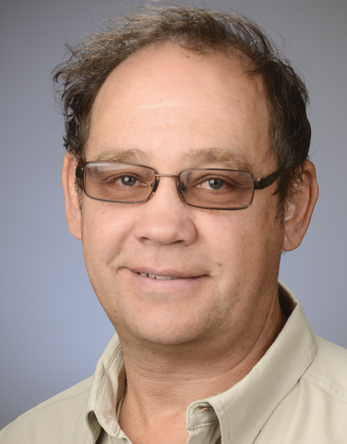
Anton Cornel, PhD
Agronomist, University of California, Davis
Dr. Anton Cornel is an agronomist in the Department of Entomology and Nematology at UC Davis. The Cornel Lab is focused on population genetics and insecticide resistance of major vectors of human malaria in Africa and Brazil. Other efforts are underway to study inter-epizootic zoonotic diseases of wildlife in South Africa, with a particular focus on competence, behavior, and systematics of arbovirus vectors. In addition, work on avian malaria hosts and vectors has revealed co-infecting parasite species and lineages that are likely to affect the diversity of parasite communities in time and space.
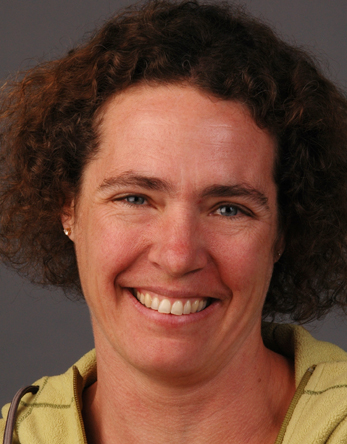
Janet Foley, PhD, DVM
Professor and Agronomist, University of California, Davis
Dr. Janet Foley is a professor and agronomist in the Department of Medicine and Epidemiology at UC Davis, School of Veterinary Medicine. The Foley Lab works on the ecology of vector-borne diseases with emphasis on acarids (mites and ticks). They study how climate, fire, and other human-caused changes to environments affect these parasites and how this translates to changes in risk for people and other animals.
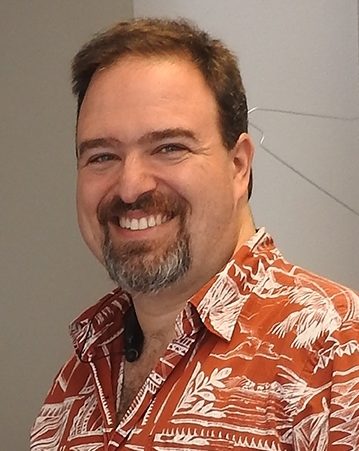
Geoffrey Attardo, PhD
Associate Professor, University of California, Davis
Dr. Geoffrey Attardo is an associate professor in the Department of Entomology and Nematology at UC Davis. He specializes in medical entomology, reproductive physiology, molecular biology and genetics. His work centers on understanding the reproductive biology of insect vectors of human disease. The goal of this work is to develop a detailed understanding of the molecular biology and physiology of these insects and to exploit this information to control these insects and the diseases they transmit. The primary subjects of his work are mosquitoes and tsetse flies. He has studied how female mosquitoes regulate their reproductive cycle and gene expression in response to blood feeding and demonstrated that mosquitoes require nutritional cues to begin developing eggs.
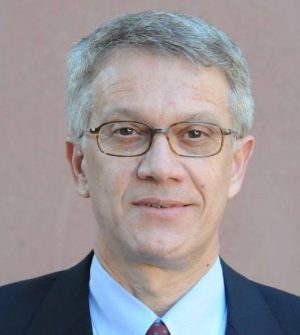
Walter Leal, PhD, MS
Distinguished Professor, University of California, Davis
Dr. Walter Leal is a Distinguished Professor in the Department of Molecular and Cellular Biology at the UC Davis. The Leal Lab is interested in understanding how insects perceive the world through the sense of smell. Insect prominence among other animals is due in large part to a sophisticated olfactory system, which can selectively detect minute amounts of odorants. They aimed at unraveling the molecular mechanisms underpinning selectivity and sensitivity. Their goal is not only to advance the understanding of fundamental biology, but also to exploit the molecular basis of insect chemical communication for the development of environmentally friendly strategies for monitoring, controlling, and surveillance of insect vectors.
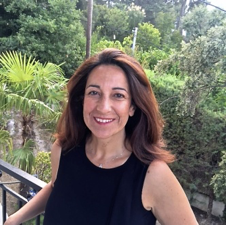
Karine Le Roch, PhD
Professor, University of California, Riverside
Director, Center for Infectious Disease and Vector Research
Dr. Karine Le Roch is a professor of molecular, cell and systems biology and the director of Center for Infectious Disease and Vector Research at UC Riverside. The overall goal of the research in the Le Roch Lab is to examine new therapeutic strategies against Apicomplexan parasites. They are particularly interested in understanding how malaria parasites direct their developmental programs over the course of their infectious cycle in both of their hosts: human and Anopheles mosquitoes. Using complementary molecular, cellular and systems biology approaches, they explore the connection between chromatin structure and the parasite transcriptome.

Kacey Ernst, PhD, MPH
Professor and Department Chair of Epidemiology and Biostatistics, University of Arizona
Dr. Kacey Ernst is a professor and Department Chair of Epidemiology and Biostatistics Department. Research in the Ernst Lab focuses on identifying how ecological and social changes impact the transmission of infectious diseases. Their aim is to incorporate that knowledge into the design of sustainable community-driven prevention and control strategies.

Karthikeyan Chandrasegaran, PhD
Assistant Professor, University of California, Riverside
Dr. Karthikeyan Chandrasegaran is an Assistant Professor in the Department of Entomology at the University of California, Riverside. His lab investigates how environmental variation shapes mosquito life history, behavior, and traits that influence population dynamics and disease transmission. Integrating ecological theory with laboratory assays, field experiments, and computational approaches, their research explores how phenotypic plasticity enables mosquitoes to persist, invade, and adapt to diverse environments. By linking individual-level trait variation to population-level outcomes, the lab aims to inform evidence-based strategies for vector surveillance and control. The Chandrasegaran Lab collaborates closely with mosquito control districts and provides interdisciplinary training for students at the intersection of vector biology, ecology, and public health.
ALUMNI

William Walton, PhD, MS
Professor of Entomology and Department Vice Chair, University of California, Riverside and Former PacVec Co-Director
Dr. William Walton was the Department Vice Chair of entomology and professor of entomology at UC Riverside. The Walton Lab studied the ecology and control of mosquitoes inhabiting constructed treatment wetlands, microbiomes of mosquitoes and their environment, biorational control strategies for mosquito vectors inhabiting underground storm drain systems, use of native larvivorous fishes for mosquito control and the characterization of semiochemicals that reduce egg laying by mosquito vectors.

Lark Coffey, PhD
Associate Professor and Associate Agronomist, University of California, Davis
Dr. Lark Coffey is an associate professor and associate agronomist in the Department of Pathology, Microbiology, and Immunology at UC Davis, School of Veterinary Medicine. The Coffey Lab studies the evolution and transmission dynamics of mosquito-borne viruses including chikungunya, Zika, West Nile, and St. Louis encephalitis that are significant causes of human disease with no licensed human vaccines or treatments beyond supportive care. They are currently developing cheap and convenient improvements to surveillance in mosquitoes, approaches to increase safety of candidate live-attenuated chikungunya virus vaccines, and a primate model of human Zika virus in pregnancy.
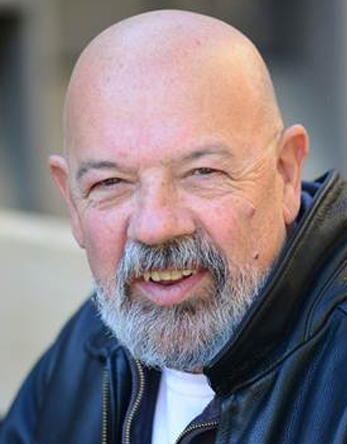
Greg Lanzaro, PhD, MS
Professor, University of California, Davis
Dr. Greg Lanzaro is a professor in the Department of Pathology, Microbiology, and Immunology at UC Davis, School of Veterinary Medicine. Greg Lanzaro directs the Vector Genetics Laboratory (VGL) at UC Davis, which deals with research and training in the areas of population & molecular genetics, genomics and bioinformatics of insect vectors of human and animal disease. They have developed a program aimed at expanding knowledge that may be applied to improving control of vector-borne diseases and that addresses problems of interest in the field of evolutionary genetics.

Yoosook Lee, PhD
Assistant Professor, University of Florida
Dr. Yoosook Lee is an assistant professor at the University of Florida. Her lab focuses on studying natural populations of arthropod vectors.

Ring Cardé, PhD, MS
Distinguished Professor of Entomology and A.M. Boyce Chair, University of California, Riverside
Dr. Ring Cardé is a Distinguished Professor of entomology and A.M. Boyce Chair in the Department of Entomology at UC Riverside. A principal interest of the Cardé Lab is defining the navigational mechanisms that female Aedes, Anopheles, and Culex mosquitoes use to locate prospective hosts. They use 3-D video tracking to record flight tracks and landing in wind tunnels and vary the odor, visual and heat cues to understand how these stimuli are integrated for orientation.
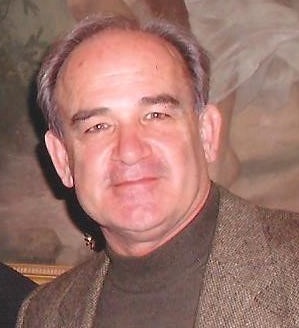
Brian Federici, PhD, MS
Distinguished Professor, University of California, Riverside
Dr. Brian Federici is a Distinguished Professor in the Graduate Division at UC Riverside. The Federici Lab engineers new larvicidal bacteria active against all major genera of vector mosquitoes and black flies. They focus on recombining genes from Bacillus thuringiensis and Lysinibacillus sphaericus, engineering these for high levels of mosquitocidal protein synthesis. Current recombinants being considered for commercial development are ten-fold more potent than wild type strains in existing commercial products used against Aedes, Anopheles, and Culex mosquitoes. These recombinants have all been engineered to avoid resistance in mosquito populations.
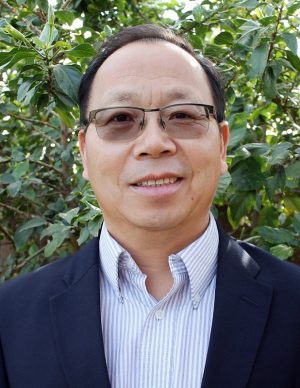
Jay Gan, PhD
Professor and Environmental Chemist, University of California, Riverside
Dr. Jay Gan is a professor and environmental chemist in the Department of Environmental Sciences at UC Riverside. The Gan Lab is focused on understanding movement, transformation and risks of man-made chemicals, including pesticides, in the environment, and developing strategies to mitigate adverse effects on non-target organisms and human health. Recent projects include evaluation of offsite movement of urban-use insecticides such as pyrethroids and fipronil and their toxicity to aquatic species, and environmental and human health risks of emerging contaminants such as pharmaceuticals, flame retardants and plasticizers.
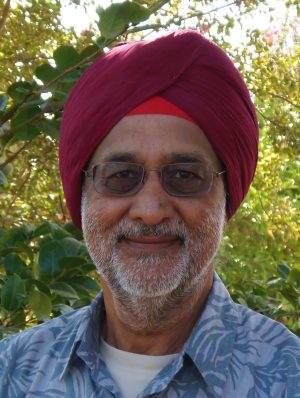
Sarjeet Gill, PhD
Distinguished Emeritus and Professor of the Graduate Division, University of California, Riverside
Dr. Sarjeet Gill is a Distinguished Emeritus and Professor of the Graduate Division, Department of Molecular, Cell and Systems Biology at UC Riverside. The Gill Lab has three principal research areas all utilizing a cellular and molecular approach to elucidate the mechanisms of toxicity and cell membrane transport. One research focus is to elucidate the mode of action of toxins derived from Bacillus thuringiensis and Clostridium bifermantans. The research aims to gain a molecular understanding of the characteristics of these toxins and how they interact with cellular targets, which result in a disruption of ion regulation and lethality.

Eamonn Keogh, PhD
Distinguished Professor, University of California, Riverside
Dr. Eamonn Keogh is a Distinguished Professor in the Department of Computer Science & Engineering at UC Riverside. The Keogh Lab studies machine learning and information retrieval, and techniques for solving similarity and indexing problems in time-series datasets. The Keogh Lab applies these techniques to design “smart traps” for the collection and identification of mosquito vectors and the pathogens that they carry.
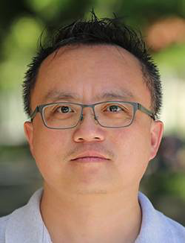
Rong Hai, PhD
Associate Professor of Virology, University of California, Riverside
Dr. Rong Hai is an associate professor of virology in the Department of Microbiology and Plant Pathology at UC Riverside. The Hai Lab is focused on the molecular characterization of emerging negative strand RNA viruses and discovering novel viral virulence signatures and molecular viral-host interactions. They combine molecular, biochemical, and imaging techniques to understand how viruses replicate and to explore virus-host interactions. The Hai Lab also have interests, driven by their research goals, in developing methods for manipulating genomes of other emerging viruses.

Jun Li, PhD
Professor, University of California, Riverside
Dr. Jun Li is a professor in the Department of Statistics at UC Riverside. The Li Lab is focused on the development of new statistical methods in the areas of ecological statistics, statistical process control and non-parametric multivariate statistics.

Jenniie Nguyen
Previous PacVec Program Coordinator, University of California, Davis
Jenniie Nguyen joined PacVec at University of California, Davis, School of Veterinary Medicine in 2024 as a program coordinator. Before Joining PacVec, Jenniie worked in student affairs and academic advising.
ADMINISTRATION
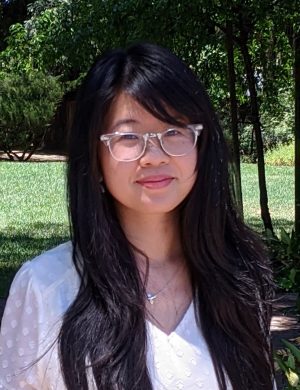
Celia Chen, MPH
PacVec Program Coordinator, University of California, Davis
Celia Chen joined PacVec at the University of California, Davis, School of Veterinary Medicine in 2019 as a program coordinator. She earned her Master of Public Health with a focus on health promotion and education from Loma Linda University in 2019.
PUBLICATIONS
Our team of collaborators conduct applied research to develop and validate effective prevention and control tools and methods to anticipate and respond to invasive mosquitoes and disease outbreaks.
PACVEC PARTNERS
PacVec leverages the resources of seven academic institutions with our strategic partners in academic communities, public health, and vector control to meet the needs of the Pacific Southwest.
The Pacific Southwest Regional Center of Excellence in Vector-Borne Diseases is supported through Cooperative Agreement Number 1U01CK000649 between the Centers for Disease Control and Prevention (CDC) and the University of California, Davis.
© 2026 – All rights reserved